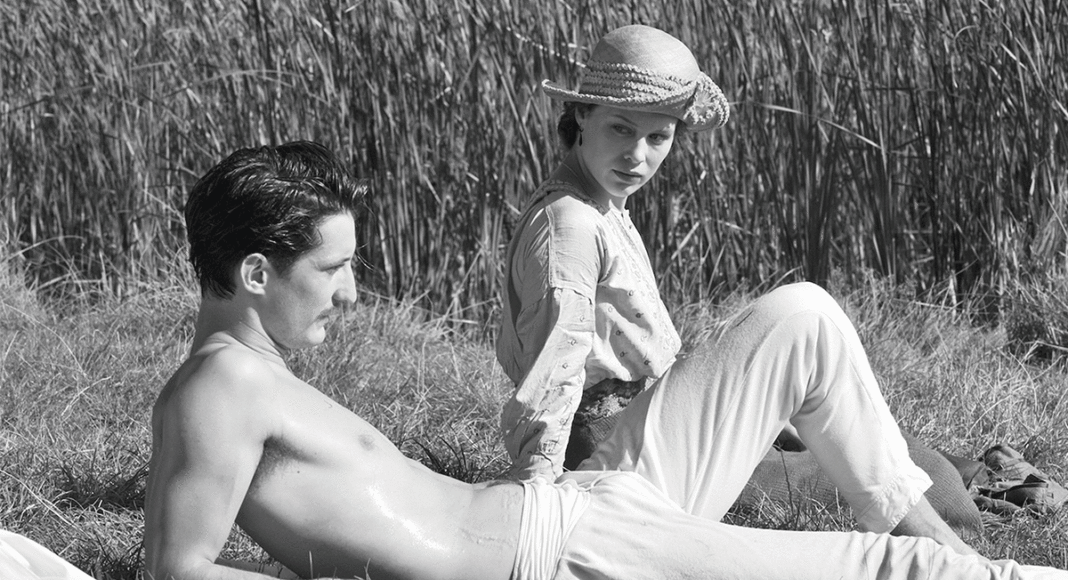Sadly, the first World War did not live up to its advertising as “the war to end all wars.” Its consequences were devastating; particularly within the European community, where a generation of young men were lost, either dead or damaged, fighting their neighbors in the trenches. French filmmaker Francois Ozon revisits that era in all its complexity in Frantz, a moody, mysterious, and utterly engrossing tone poem on love, loss, and absolution.
The origins of Ozon’s story lie in a 1932 stage play by Maurice Rostand, which Ernst Lubitsch made into the film Broken Lullaby the same year. At that time, no one knew the world was on the brink of yet another Great War, which only proves how stubbornly the human species refuses to learn from its mistakes—a situation Ozon finds as disturbingly timely as ever today.
Protagonist Anna (poised, wistful Paula Beers) is a young German woman in a small town, whose fiancé, Frantz, was killed in the war. It’s 1919, and Anna has moved in with Frantz’s parents, doctor Hans Hoffmeister (Ernst Stotzner), and homemaker Magda (Marie Gruber), to share their grief. On one of Anna’s daily visits to the cemetery, she finds a stranger, soft-spoken young Frenchman Adrien Rivoire (Pierre Niney), leaving flowers on Frantz’s grave.
Adrien tells them all that he knew Frantz in Paris, where their Francophile son lived for a time before the war. Most of the townsfolk, Hans included, are suspicious of a Frenchman in their midst, but Magda warms up to Adrien; she calls him “shy and stormy”—like Frantz. They are charmed that Adrien plays the violin, like their son. Anna too befriends Adrien, showing him around to places that held special meaning for Frantz, in exchange for Adrien’s precious memories of her lost love.
The rest of the plot is best left to the viewer to discover. Let’s just say the movie keeps changing direction, but never quite ends up where you might think it’s going. Ozon (who made the elegant 2002 thriller Swimming Pool) shoots in expressionistic black-and-white, evoking both the between-the-wars period (special kudos to costume designer Pascaline Chavanne), and the element of mystery at the heart of his story.
Both visually and in storytelling terms, Frantz is an immersive experience. We are drawn to the characters and into their world even as we begin to unravel the intricacy of lies—some tormenting, others merciful—woven into the underpinning of their story. Ozon also subtly switches to color for some scenes, for reasons that become apparent only gradually. His images are as haunting and steeped in emotion as the story deserves.
Maybe it’s the black-and-white film, but the compelling Niney has the expressive look and demeanor of a silent movie actor, with his dark-rimmed eyes and pencil moustache. He doesn’t exaggerate, but you can read everything he’s feeling on his face. His Adrien desperately wants to do the right thing (by Frantz and his family, and by Anna) if only he could figure out how. He embodies the dilemma faced by everyone, at the front and at home, forced into unimaginable horror from which there will never be any escape.
Ozon quietly makes this point again and again, especially in his devastating riff on the uber-patriotic scene from Casablanca in which a roomful of French civilians stands up to sing “La Marseillaise” when German soldiers enter Rick’s bar. Except this time, Ozon provides subtitles to the anthem’s bloodthirsty lyrics, which puts a whole new spin on the scene, and the notion of passionate, unbridled nationalism.
Another telling scene occurs in the neighborhood taproom, where Hans’ peers who have lost sons in the war are denouncing the murderous French. Hans suggests they stop blaming the “enemy” and direct their ire at those who urged the young men to go fight and supplied them with weapons and a reason: the fathers themselves. And the Fatherland.
With Frantz, Ozon has gifted us with the kind of thoughtful, lyrical moviemaking we don’t see enough of anymore.
FRANTZ
**** (out of four)
With Pierre Niney and Paula Beer. Written by Francois Ozon and Philippe Piazzo. Directed by Francois Ozon. A Music Box Films release. (PG-13) 113 minutes. In German and French with English subtitles.











